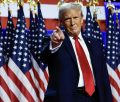Financial Markets, Politics and the New Reality

Louis M. Bacon is the head of Moore Capital Management, one of the largest and most influential hedge funds in the world. Last week, he announced that he was returning one quarter of his largest fund, about $2 billion, to his investors. The reason he gave to The New York Times was that he had found it difficult to invest given the impossibility of predicting the European situation. He was quoted as saying, “The political involvement is so extreme — we have not seen this since the postwar era. What they are doing is trying to thwart natural market outcomes. It is amazing how important the decision-making of one person, Angela Merkel, has become to world markets.”
The purpose of hedge funds is to make money, and what Bacon essentially said was that it is impossible to make money when there is heavy political involvement, because political involvement introduces unpredictability in the market. Therefore, prudent investment becomes impossible. Hedge funds have become critical to global capital allocation because their actions influence other important actors, and their unwillingness to invest and trade has significant implications for capital availability. If others follow Moore Capital’s lead, as they will, there will be greater difficulty in raising the capital needed to address the problem of Europe.
But more interesting is the reasoning. In Bacon’s remarks, there is the idea that political decisions are unpredictable, or less predictable than economic decisions. Instead of seeing German Chancellor Merkel as a prisoner of non-market forces that constrain her actions, conventional investors seem to feel that Europe is now subject to Merkel’s whims. I would argue that political decisions are predictable and that Merkel is not making decisions as much as reflecting the impersonal forces that drive her. If you understand those impersonal forces, it is possible to predict political behaviors, as you can market behaviors. Neither is an exact science, but properly done, neither is impossible.
Political Economy
In order to do this, you must begin with two insights. The first is that politics and the markets always interact. The very foundation of the market — the limited liability corporation — is political. What many take as natural is actually a political contrivance that allows investors to limit their liability. The manner in which liability is limited is a legal issue, not a market issue, and is designed by politicians. The structure of risk in modern society revolves around the corporation, and the corporation is an artifice of politics along with risk. There is nothing natural about a nation’s corporate laws, and it is those corporate laws that define the markets.
There are times when politics leave such laws unchanged and times when politics intrude. The last generation has been a unique time in which the prosperity of the markets allowed the legal structure to remain generally unchanged. After 2008, that stability was no longer possible. But active political involvement in the markets is actually the norm, not the exception. Contemporary investors have taken a dramatic exception — the last generation — and lacking a historical sense have mistaken it for the norm. This explains the inability of contemporary investors to cope with things that prior generations constantly faced.
The second insight is the recognition that thinkers such as Adam Smith and David Ricardo, who modern investors so admire, understood this perfectly. They never used the term “economics” by itself, but only in conjunction with politics; they called it political economy. The term “economy” didn’t stand by itself until the 1880s when a group called the Marginalists sought to mathematize economics and cast it free from politics as a stand-alone social science discipline. The quantification of economics and finance led to a belief — never held by men like Smith — that there was an independent sphere of economics where politics didn’t intrude and that mathematics allowed markets to be predictable, if only politics wouldn’t interfere.
Given that politics and economics could never be separated, the mathematics were never quite as predictive as one would have thought. The hyper-quantification of market analysis, oblivious to overriding political considerations, exacerbated market swings. Economists and financiers focused on the numbers instead of the political consequences of the numbers and the political redefinitions of the rules of corporate actors, which the political system had invented in the first place.
The world is not unpredictable, and neither is Europe nor Germany. The matter at hand is neither what politicians say they want to do nor what they secretly wish to do. Indeed, it is not in understanding what they will do. Rather, the key to predicting the political process is understanding constraints — the things they can’t do. Investors’ view that markets are made unpredictable by politics misses two points. First, there has not been a market independent of politics since the corporation was invented. Second, politics and economics are both human endeavors, and both therefore have a degree of predictability.
Merkel’s Constraints
The European Union was created for political reasons. Economic considerations were a means to an end, and that end was to stop the wars that had torn Europe apart in the first half of the 20th century. The key was linking Germany and France in an unbreakable alliance based on the promise of economic prosperity. Anyone who doesn’t understand the political origins of the European Union and focuses only on its economic intent fails to understand how it works and can be taken by surprise by the actions of its politicians.
Postwar Europe evolved with Germany resuming its prewar role as a massive exporting power. For the Germans, the early versions of European unification became the foundation to the solution of the German problem, which was that Germany’s productive capacity outstripped its ability to consume. Germany had to export in order to sustain its economy, and any barriers to free trade threatened German interests. The creation of a free trade zone in Europe was the fundamental imperative, and the more nations that free trade zone encompassed, the more markets were available to Germany. Therefore, Germany was aggressive in expanding the free trade zone.
Germany was also a great supporter of Europewide standards in areas such as employment policy, environmental policy and so on. These policies protect larger German companies, which are able to absorb the costs, from entrepreneurial competition from the rest of Europe. Raising the cost of entry into the marketplace was an important part of Germany’s strategy.
Finally, Germany was a champion of the euro, a single currency controlled by a single bank over which Germany had influence in proportion to its importance. The single currency, with its focus on avoiding inflation, protected German creditors against European countries inflating their way out of debt. The debt was denominated in euros, the European Central Bank controlled the value of the euro, and European countries inside and outside the eurozone were trapped in this monetary policy.
So long as there was prosperity, the underlying problems of the system were hidden. But the 2008 crisis revealed the problems. First, most European countries had significant negative balances of trade with Germany. Second, European monetary policy focused on protecting the interests of Germany and, to a lesser extent, France. The regulatory regime created systemic rigidity, which protected existing large corporations.
Merkel’s policy under these circumstances was imposed on her by reality. Germany was utterly dependent on its exports, and its exports in Europe were critical. She had to make certain that the free trade zone remained intact. Secondarily, she had to minimize the cost to Germany of stabilizing the system by shifting it onto other countries. She also had to convince her countrymen that the crisis was due to profligate Southern Europeans and that she would not permit them to take advantage of Germans. The truth was that the crisis was caused by Germany’s using the trading system to flood markets with its goods, its limiting competition through regulations, and that for every euro carelessly borrowed, a euro was carelessly lent. Like a good politician, Merkel created the myth of the crafty Greek fooling the trusting Deutsche Bank examiner.
The rhetoric notwithstanding, Merkel’s decision-making was clear. First, under no circumstances could she permit any country to leave the free trade zone of the European Union. Once that began she could not predict where it would end, save that it might end in German catastrophe. Second, for economic and political reasons she had to be as aggressive as possible with defaulting borrowers. But she could never be so aggressive as to cause them to decide that default and withdrawal made more sense than remaining in the system.
Merkel was not making decisions; she was acting out a script that had been written into the structure of the European Union and the German economy. Merkel would create crises that would shore up her domestic position, posture for the best conceivable deal without forcing withdrawal, and in the end either craft a deal that was not enforced or simply capitulate, putting the problem off until the next meeting of whatever group.
In the end, the Germans would have to absorb the cost of the crisis. Merkel, of course, knew that. She attempted to extract a new European structure in return for Germany’s inevitable capitulation to Europe. Merkel understood that Europe, and one of the foundations of European prosperity, was cracking. Her solution was to propose a new structure in which European countries accepted Brussels’ oversight of their domestic budgets as part of a systemic solution by the Germans. Some countries outright rejected this proposal, while others agreed, knowing it would never be implemented. Merkel’s attempt to recoup by creating an even more powerful European apparatus was bound to fail for two reasons. First and most important, giving up sovereignty is not something nations do easily — especially not European nations and not to what was effectively a German structure. Second, the rest of Europe knew that it didn’t have to give in because in the end Germany would either underwrite the solution (by far the most likely outcome) or the free trade zone would shatter.
If we understand the obvious, then Merkel’s actions were completely understandable. Germany needed the European Union more than any other country because of its trade dependency. Germany could not allow the union to devolve into disconnected nations. Therefore, Germany would constantly bluff and back off. The entire Greek drama was the exemplar of this. It was Merkel who was trapped and, being trapped, she was predictable.
The euro question was interesting because it intersected the banking system. But in focusing on the euro, investors failed to understand that it was a secondary issue. The European Union was a political institution and European unity came first. The lenders were far more concerned about the fate of their loans than the borrowers were. And whatever the shadow play of the European Central Bank, they would wind up doing the least they could do to avert default — but they would avert default. The euro might have been what investors traded, but it was not what the game was about. The game was about the free trade zone and Franco-German unity. Merkel was not making decisions based on the euro, but on other more pressing considerations.
Modern Trading
The investors’ problem is that they mistake the period between 1991 and 2008 as the norm and keep waiting for it to return. I saw it as a freakish period that could survive only until the next major financial crisis — and there always is one. While the unusual period was under way, political and trade issues subsided under the balm of prosperity. During that time, the internal cycles and shifts of the European financial system operated with minimal external turbulence, and for those schooled in profiting from these financial eddies, it was a good time to trade.
Once the 2008 crisis hit external factors that were always there but quiescent became more overt. The internal workings of the financial system became dependent on external forces. We were in the world of political economy, and the political became like a tidal wave, making the trading cycles and opportunities that traders depended on since 1991 irrelevant. And so, having lost money in 2008, they could never find their footing again. They now lived in a world where Merkel was more important than a sharp trader.
Actually, Merkel was not more important than the trader. They were both trapped within constraints about which they could do nothing. But if those constraints were understood, Merkel’s behavior could be predicted. The real problem for the hedge funds was not that they didn’t understand what they were doing, but the manner in which they had traded in the past simply no longer worked. Even understanding and predicting what political leaders will do is of no value if you insist on a trading model built for a world that no longer exists.
What is called high velocity trading, constantly trading on the infinitesimal movements of a calm but predictable environment, doesn’t work during a political tidal wave. And investors of the last generation do not know how to trade in a tidal wave. When we recall the two world wars and the Cold War, we see that this was the norm for the century and that fortunes were made. But the latest generation of investors wants to control risk rather than take advantage of new realities.
However we feel about the performance of the financial community since 2007, there must be a system of capital allocation. That can be operated by the state, but there is empirical evidence that the state isn’t very good at making investment decisions. But then, the performance of the financial community has been equally unacceptable, with more than its share of mendacity to boot. The argument for private capital allocation may be theoretically powerful, but the fact is that the empirical validation of the private model hasn’t been there for several years.
A strong argument can be made — corruption and stupidity aside — that the real problem has been a failure of imagination. We have re-entered an era in which political factors will dominate economic decisions. This has been the norm for a very long time, and traders who wait for the old era to return will be disappointed. Politics can be predicted if you understand the constraints under which a politician such as Merkel acts and don’t believe that it is simply random decisions. But to do that, you have to return to Adam Smith and recall the title of his greatest work, The Wealth of Nations. Note that Smith was writing about nations, about politics and economics — about political economy.
“Financial Markets, Politics and the New Reality is republished with permission of Stratfor.”
-
Book Shelf
-
 Book Review
DESTINY OF A DYSFUNCTIONAL NUCLEAR STATE
Book Review
DESTINY OF A DYSFUNCTIONAL NUCLEAR STATE
- Book ReviewChina FO Presser Where is the fountainhead of jihad?
- Book ReviewNews Pak Syndrome bedevils Indo-Bangla ties
- Book Review Understanding Vedic Equality….: Book Review
- Book Review Buddhism Made Easy: Book Review
- Book ReviewNews Elegant Summary Of Krishnamurti’s teachings
- Book Review Review: Perspectives: The Timeless Way of Wisdom
- Book ReviewNews Rituals too a world of Rhythm
- Book Review Marx After Marxism
- Book Review John Updike’s Terrorist – a review
-
-
Recent Top Post
-
 CommentariesTop Story
India’s Migration Dilemma
CommentariesTop Story
India’s Migration Dilemma
-
 Commentaries
Crowd Management Blues
Commentaries
Crowd Management Blues
-
 Meher Baba SpeaksNews
Meher Baba Loved Them Too…
Meher Baba SpeaksNews
Meher Baba Loved Them Too…
- Commentaries Record Pentagon spending bill and America’s hidden nuclear rearmament
-
 CommentariesNews
Ides of trade between India and Pakistan
CommentariesNews
Ides of trade between India and Pakistan
-
 Commentaries
How sustainable is the rhetoric of India-China Bhai-Bhai
Commentaries
How sustainable is the rhetoric of India-China Bhai-Bhai
-
 CommentariesTop Story
New Set of Diplomatic Strains with Canada
CommentariesTop Story
New Set of Diplomatic Strains with Canada
-
 News
Ratan Tata’s Legacy
News
Ratan Tata’s Legacy
-
 Commentaries
India’s Strategic Push on the World Stage
Commentaries
India’s Strategic Push on the World Stage
- Commentaries Veils of Resistance
-
AdSense code
















